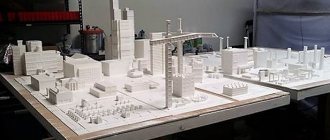How to write a methodological developmentmethodological development on the topic
Memo “How to write a methodological development.”
Methodological development is a manual that reveals the forms, means, methods of teaching, elements of modern pedagogical technologies, or the technologies of teaching and upbringing themselves in relation to a specific lesson topic, curriculum topic, and course teaching in general.
Methodological development can be both individual and collective work. It is aimed at professional and pedagogical improvement of the teacher.
There are quite serious requirements for methodological development.
1. Topic.
2. Full name teacher
3. Purpose of development
4. Abstract. The annotation (3-4 sentences) briefly indicates what problem the methodological development is devoted to, what issues it reveals, and to whom it may be useful.
5. Contents. (describe the parts of the lesson. 1. Involving children in activities. 2. stages of the lesson)
6. Introduction. The introduction (3-4 sentences) reveals the relevance of this work, i.e. the author answers the question why he chose this topic and what is its place in the content of education.
7. The main part is the lesson notes itself.
- Group, type of lesson, educational area, goal, objectives for educational areas or integration of educational areas, preliminary work, material required for the lesson.
- structure (scenario) of the lesson indicating the sequence of its stages and the approximate distribution of time over these stages;
- methods and techniques of the teacher at each stage of the lesson; it is necessary to reflect the goals and objectives of the activities of the teacher and children, methods and means of achieving the goals, the main substantive content of the relevant stages, the organization of work at each stage;
- content of educational material (fragments of the teacher’s speech or the full text of new material);
- tasks for children at each stage, algorithms for completing tasks.
- methodological advice for the immediate aftereffect period (how to sum up, what to do to consolidate the result, etc.).
8. Conclusion. In conclusion (3-4 sentences), the results are summed up on the problematic issues that were posed by the teacher when starting to compile the methodological development.
9. List of sources used.
10. Applications (specific materials that a teacher can use in his work: task cards, diagram cards, visual, didactic material)
11. The volume of the main content is at least half of the entire manuscript.
What is methodological development and the requirements for it
What is methodological development and the requirements for it.
Methodological development is a manual that reveals the forms, means, methods of teaching, elements of modern pedagogical technologies or the technologies themselves about teaching and upbringing in relation to a specific lesson topic, curriculum topic, and teaching the course as a whole.
Methodological development can be both individual and collective work. It is aimed at professional and pedagogical improvement of a teacher or master of industrial training or the quality of training in educational specialties.
Types of methodological developments
Methodological development can be:
- Development of a specific lesson;
- Development of a series of lessons;
- Development of the program theme:
- Development of a private (author's) method of teaching the subject;
- Development of a general methodology for teaching subjects;
- Development of new forms, methods or means of training and education;
- Methodological developments related to changes in the material and technical conditions of teaching the subject.
There are quite serious requirements for methodological development. Therefore, before you start writing it, you must:
- Carefully approach the choice of development topic. The topic must be relevant, known to the teacher, and the teacher must have accumulated some experience on this topic.
- Determine the purpose of methodological development.
- Carefully study the literature, teaching aids, and positive experiences on the chosen topic.
- Draw up a plan and determine the structure of methodological development.
- Determine the directions for future work.
When starting work on drawing up a methodological development, it is necessary to clearly define its purpose .
For example, the goal could be:
- determination of forms and methods of studying the content of the topic;
- disclosure of experience in conducting lessons on studying a particular topic of the curriculum;
- description of the types of activities of the teacher and students;
- description of the methodology for using modern technical and information teaching aids;
- connecting theory with practice in the classroom;
- use of modern pedagogical technologies or their elements in lessons, etc.
Requirements for methodological development:
- The content of the methodological development must clearly correspond to the topic and purpose.
- The content of methodological development should be such that teachers can obtain information about the most rational organization of the educational process, the effectiveness of methods and teaching techniques, forms of presentation of educational material, and the use of modern technical and information teaching aids.
- Author's (private) methods should not repeat the content of textbooks and curricula, describe the phenomena and technical objects being studied, or cover issues presented in general pedagogical literature.
- The material should be systematized and presented as simply and clearly as possible.
- The language of methodological development should be clear, concise, competent, and convincing. The terminology used must correspond to the pedagogical thesaurus.
- Recommended methods, teaching techniques, forms and means of teaching should be substantiated by references to your teaching experience.
- Methodological development must take into account the specific material and technical conditions for the implementation of the educational process.
- Orient the organization of the educational process towards the widespread use of active forms and methods of teaching.
- Methodological development should address the question “How to teach.”
- It should contain specific materials that a teacher can use in his work (task cards, UPD samples, lesson plans, instructions for laboratory work, diagram cards, tests, level-by-level tasks, etc.).
Structure of methodological development
General structure:
- Annotation.
- Content.
- Introduction.
- Main part.
- Conclusion.
- List of sources used.
- Applications.
The annotation (3-4 sentences) briefly indicates what problem the methodological development is devoted to, what issues it reveals, and to whom it may be useful.
The introduction (1-2 pages) reveals the relevance of this work, i.e. the author answers the question why he chose this topic and what is its place in the content of education.
Methodological development of the program theme
The main part may consist of the following sections:
- Characteristics of the topic;
- Planning the study of the topic;
- Recommendations for the organization and methodology of studying the topic.
The topic description states:
- Educational goals and objectives of the topic;
- Planning the topic and the number of hours allocated to study it;
- Knowledge and skills that students must acquire or improve;
- Place and role of the topic in the course;
- Connection with previous or subsequent material, as well as intra-subject and inter-subject connections;
- A didactic analysis of the content of the material is given;
- The levels of study and assimilation of educational material are highlighted;
- A comparative analysis of the quality of teaching using the proposed methodology with the methodology that was used by the teacher before using the proposed methodological development is possible.
When planning a training topic, you must:
- Think over the methodology for teaching the topic.
- Select examples, illustrations, outline laboratory and practical classes, tests, excursions, etc.
- Highlight the main issues that students need to firmly understand.
- Analyze the educational capabilities of the educational material and the methodology used.
In conclusion (1-2 pages) sums up the problematic issues that were posed by the teacher when starting to compile the methodological development.
The structure of the methodological development of a theoretical teaching lesson.
The main part includes the following sections:
- Methodological justification of the topic.
- Methodological recommendations for conducting a lesson.
- Lesson plan (with technological map).
- Didactic material for the lesson (may not be included in the form of attachments).
- List of literature (sources) for students.
- List of literature for teachers.
Recommended Lesson Plan:
- Theme of the program.
- Lesson topic.
- Lesson type.
- Type of lesson.
- The goal is methodological.
- Goals of education (training, upbringing, development).
- Material and technical support of the lesson.
- Intersubject and intrasubject connections.
Recommended technological lesson map:
| Didactic structure of the lesson | Methodological substructure of the lesson | Signs of solving didactic problems | ||||
| Teaching methods | Form of activity | Methodological techniques and their content | Means of education | Ways to organize activities | ||
The type of lesson is determined by the purpose of organizing the lesson, i.e. the purpose of its implementation.
Type of theoretical training lessons (according to M.I. Makhmutov):
- Lesson on learning new educational material.
- Lesson to improve knowledge, skills and abilities.
- Lesson of generalization and systematization of knowledge.
- Lesson of control of knowledge, skills and abilities.
- Combined.
Types of practical training lessons (according to M.I. Makhmutov):
- Lesson on the initial formation of skills and abilities.
- Lesson on improving skills and abilities.
- Lesson on completing complex tasks (works).
The type of lesson is determined by the form of joint activity between the teacher and students, which dominates the lesson:
- Lecture.
- Conversation.
- Independent work.
- Practical work.
- Laboratory work.
- Conference.
- Seminar.
- Test.
- Pass.
- Business game.
- Excursion.
- Mixed (several types of activities of approximately the same time).
The didactic structure of the lesson includes the following didactic tasks:
- Motivation and stimulation of student activity, goal setting, activation of necessary knowledge.
- Formation of new concepts and methods of action.
- Application of concepts and methods of action.
It is most effective when all three didactic tasks are solved in a lesson, but it can be different (this depends on the goals and type of lesson).
Didactic methods (according to Lerner I.Ya.):
- Information-receptive.
- Reproductive.
- Problematic: problematic presentation; heuristic; research.
The form of activity depends on the method and methodological techniques used. For example: conversation, independent work, working with a book, watching a video, etc.
Ways to organize the activities of the teacher and students (according to Molchan L.L.):
- Frontal.
- Individual.
- Paired.
- Collective.
The goals of education are divided into the goals of training (formation of knowledge, skills and abilities), education (formation of views, beliefs, personality traits) and development (development of interests, thinking, speech, will, etc.).
The methodological goal for each lesson involves creating conditions for the formation of knowledge, skills and abilities; development of abilities; education of personality traits, etc. If the lesson is open, then the methodological goal depends on the purpose of inviting colleagues to this lesson.
- Methodological development of a lesson in the first grade for a group of students with FFND. Topic: B-B sounds
- What is “Culture of Speech”?
- Speech therapist annual work plan
- What is LOGOPOINT?
- Logic GCD No. 4 “About bread, What is a bakery”
( 1 liked, average score: 5.00 out of 5)
Loading...
Introduction
This work was written to help teachers of experimental sites for problem-based learning based on OTSM-TRIZ. The examples provided here illustrate the techniques used in this pedagogical approach. However, the author hopes that other teachers who want to describe their methodological developments will also find useful advice here.
The recommendations are described in the form of a template. By replacing the template text with the author’s text in accordance with these recommendations, the teacher will be able to create his own methodological development. This approach was borrowed from my supervisor, Professor V.V. Guzeev [1], whose dissertation research template was the basis for my own Ph.D. thesis.
The second section provides direct recommendations for creating a methodological development, and the third section contains a list of references used.
The essence of the methodological work of a teacher of preschool children.
3
The essence of the methodological work of a child educator
preschool age.
1. The concept of methodological work and its goals.
The successful development of the system of additional education for children is unthinkable without the development of its theory and methodology. Methodological activity plays a significant role in this process.
| Methodical work - This is a holistic system of measures, based on the achievements of science, best practices and analysis of teachers’ difficulties, aimed at improving the skills of each teacher, at generalizing and developing the creative potential of the team, and at achieving optimal results in the education, upbringing and development of children. |
The purpose of methodological work
in preschool educational institutions is to create optimal conditions for the continuous improvement of the level of general and pedagogical culture of participants in the educational process.
The implementation of this goal of methodological activity is carried out through the organization of the activities of such organizational structures as:
- methodological associations of preschool teachers,
- scientific, methodological and pedagogical council,
- monitoring service,
- as well as the active involvement of teachers in self-education.
In modern conditions of development of our society, preschool educational institutions are assigned very responsible social tasks:
that generation of people, whose work and talent, initiative and creativity will determine the socio-economic, scientific, technical and moral progress of Russian society in the future. |
In this regard, shortcomings and errors in the educational work of preschool educational institutions, in educational management and in pedagogical science itself are becoming increasingly intolerant.
| Task The goal of the head and methodologist of a preschool institution is to develop a system, find accessible and at the same time effective methods of improving pedagogical skills. |
Today, due to the need to rationally and quickly solve educational problems, the role of the activities of the methodological service is increasing, the correct organization of which is the most important means of improving the quality of education, and the real level of methodological work in a preschool institution is becoming one of the most important criteria for assessing its activities.
| Therefore it is necessary to consider organization of methodological work in a preschool institution, |
2.Planning methodological work
| Methodical service is a connecting link between the life activity of the teaching staff, the state education system, psychological and pedagogical science, advanced pedagogical experience, promoting the formation, development and realization of the professional creative potential of teachers. |
The methodological service of preschool educational institutions in accordance with the Law of the Russian Federation “On Education”, focusing on the humanization of the purposeful process of education and training in the interests of the individual, society, and the state, implementing the principles of state policy in the field of education, is designed to ensure:
Belaya K.Yu. Methodological work in preschool educational institutions: Analysis, planning, forms and methods. - M.: Sfera, 2005. - P. 96. |
Planning of methodological work in preschool educational institutions is carried out on an analytical basis:
|
Any preschool educational institution exists in one of two modes:
- functioning
- or development (innovation).
| 1. Consequently, in a preschool educational institution that is in a stable mode functioning, The methodological service must ensure correction of the pedagogical process in cases of its deviation from the technology, methodology for implementing the program of education and training of preschoolers. |
| 2. If the team intends to work in innovation mode (new content of training or implementation of new pedagogical technologies), then this requires the creation of a new model of methodological work that ensures the transition of preschool educational institutions from a functioning mode to a development mode. Losev P.N. Management of methodological work in a modern preschool educational institution. - M.: Bustard, 2005. P. 152. |
In all cases, the purpose of the methodological service
- create an educational environment in which the creative potential of each teacher and the entire teaching staff will be fully realized.
This leads to the main tasks of methodological work:
1. Training and development of teaching staff, management of their professional development.
2. Identification, study, generalization and dissemination of advanced pedagogical experience of preschool teachers.
3. Preparation of methodological support for the implementation of the educational process.
4. Coordination of the activities of the preschool educational institution and the family in ensuring the comprehensive continuous development of pupils.
Basic approaches to organizing methodological work in preschool educational institutions
based on:
| system-active approach: understanding the goals and objectives of the preschool educational institution, its status and conditions, as well as ensuring the integrity of the educational process in the context of the use of variable programs and technologies, taking into account the influence of external and internal relations on it; person-centered approach: ensuring a more complete disclosure of the capabilities and abilities of each teacher and child, the team as a whole, focusing on the development of professional and personal qualities of teachers using the example of a methodologist and senior educator; differentiated approach : taking into account the level of professional competence and individual educational needs in building a system of methodological work in preschool educational institutions; free self-determination approach: free choice of each teacher of educational programs and ways of self-realization; motivational-stimulating approach: the use of various incentives that arouse interest and motives for activity; corrective approach: timely elimination of deficiencies identified during pedagogical monitoring and the causes that cause them. |
Today there is a problem of low efficiency of methodological work in many preschool educational institutions.
The main reason is the formal implementation of the systemic approach, its replacement with an eclectic, random set of recommendations of an opportunistic nature, the implantation of far-fetched techniques and ways of organizing upbringing and education.
Methodological work should be proactive in nature and ensure the development of the entire educational process in accordance with new achievements of pedagogical and psychological science.
3.Methodological support of the methodological process
One of the core conditions for the life of a preschool educational institution is methodological support for the methodological process. This is where the organization of methodological work begins in any preschool educational institution.
The preschool educational program and methodological complex is selected taking into account:
|
Through the self-government body of the preschool educational institution, the pedagogical council, a program is approved for the implementation of the educational process that is most conducive to the conditions for the selection of methodological support.
Thus, the educational process in all groups of preschool educational institutions is carried out according to a comprehensive program that correlates with the social order and the type of preschool educational institution.
The effectiveness of the educational process in preschool educational institutions also depends on the creation of conditions for its implementation. This determines the following directions of methodological work:
| 1. Organization of a preschool educational institution that corresponds to the content of the program, interests and needs of children of different ages: — development of methodological recommendations for RPPS of preschool educational institutions; — ensuring the selection of toys, games, and manuals for working with children according to the program, taking into account modern requirements; — activation of teachers in the development of attributes and teaching aids. |
| 2. Correlation of the content of the educational process with the selected program: — formation of a data bank on the implementation of the program and its individual sections; — analysis of the implementation of decisions of teachers’ councils, medical and pedagogical meetings. |
| 3. Updating the content of methodological support (technologies, methods) in accordance with modern requirements. |
| 4. Development of a daily routine, a schedule of activities, and work schedules for clubs for each age group. |
| 5. Monitoring the balance of motor and intellectual, organized and independent activities of students. |
4. Structure, forms and methods of methodological work
| Methods of methodological work - These are ordered methods of activity to achieve goals. |
| Form - this is the internal organization of content, the design of segments, cycles of the methodological process, reflecting the system of its components and stable connections. |
According to the forms, methodological work is divided into group and individual.
Group include :
- participation of teachers in methodological associations of the city, district, preschool educational institution;
- organization of theoretical and scientific-practical conferences; teachers' councils.
Individual ones
include :
- individual consultations,
- conversations,
- mentoring,
- mutual visits,
- self-education.
In order to make the right choice for your team of forms and methods, you must be guided by:
|
The most effective forms of organizing methodological work are:
- teachers' council;
- seminars, workshops;
- open views;
- medical and pedagogical meetings;
- consultations;
- work of the creative team.
External advanced training occurs:
- by attending advanced training courses;
- training in educational institutions;
- participation in the work of methodological associations of the region.
Internal professional development occurs through various forms of methodological work with teachers in preschool educational institutions:
- participation in the work of the council of teachers;
- training at seminars and workshops;
- consulting, etc.
| In methodological work, a special place is given to the principle of an individually differentiated approach to the pedagogical activities of educators and specialists. |
In modern conditions, methodological work with personnel should be built on a diagnostic basis, taking into account the needs of each teacher.
5.Methodological office as a center for methodological work
| The center of all methodological work of the preschool educational institution is the methodological office. |
He plays a leading role:
- in providing assistance in organizing the educational process,
- ensuring their continuous self-development,
- generalization of advanced pedagogical experience,
- increasing the competence of parents in matters of raising and educating children.
| Methodical office - this is a piggy bank of the best traditions of preschool education, so the task of the deputy. head according to VMR:
|
| Methodical office The preschool educational institution must meet
|
The implementation of the information and analytical function of preschool education management determines the formation of an information data bank in the methodological room, where the sources, content, and direction of information are determined.
DOW information bank
| Bank of external information | Bank of internal information |
| 1. Regulatory documents of the Legislation of the Russian Federation; | 1. Regulatory documents regulating the activities of preschool educational institutions; |
| 2. Organization of methodological work in preschool educational institutions; | 2. Planning the activities of preschool educational institutions; |
| 3. Child development in the educational space of preschool educational institutions; | 3. Organization and management of educational activities of preschool educational institutions; |
| 4. Organization of interaction between preschool educational institutions and families and schools; | 4. Control and regulation of educational activities of preschool educational institutions. |
| 5. Information from periodicals of preschool educational institutions. |
In the methodological room of the preschool educational institution:
|
Thus, as part of the implementation of the main tasks of methodological work, the methodological office is the center for collecting pedagogical information,
as well as a creative laboratory for teachers and parents.
The result of methodological work in preschool educational institutions should be:
|
Bibliography
1. Bagautdinova S.F. Features of methodological work in a modern preschool educational institution. // Management of preschool educational institutions. - 2004. - No. 3. ? pp. 82-85.
2. Volobueva L.M. Active teaching methods in the methodological work of preschool educational institutions. // Management of preschool educational institutions. - 2006. No. 6. — P. 70-78.
3. Lipchanskaya I.A. Monitoring the functioning and development of preschool educational institutions: methodological recommendations. - M.: Sphere shopping center, 2009.
4. Markova L.S. Management activities of the head of a social institution. ? M., 2005.
5. Nikishina I.V. Diagnostic and methodological work in preschool educational institutions. - Volgograd, 2007.
6. Falyushina L.I. Quality management of the educational process in preschool educational institutions. - M.: ARKTI, 2009.






